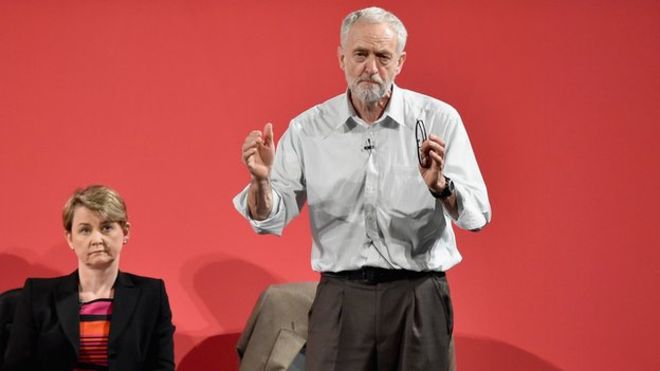Jeremy Corbyn, maverick MP for Islington North since 1983, has dominated headlines this week as private polls suggest he could surprise the bookies to emerge victorious in the Labour leadership contest. The already 5-time parliamentary Beard of the Year winner has garnered a sudden rush of political support, mainly because of his optimistic ‘hard-left’ views.
The 66yr old is the only candidate to revive Tony Benn’s socialist ideology; fighting the neoliberal agenda of cuts and privatisation as our road to national recovery. Corbyn continually cites the growing number of food banks, increases in child poverty and soaring rent (and relative living costs) right across the UK, as evidence of failed government policy. What’s more, Corbyn even has suggestions to solve these problems; he’s not a mere Russell Brand of the political world.
Corybn’s leadership campaign centres on austerity alternatives and his views aren’t as wild as you might think. He reasons that polarising wealth is unsustainable, that some industries should be renationalised, and that we can afford the NHS by raising more funds through general taxation. It’s entirely possible that his relatable, ‘common sense’ optimism could win back some lost UKIP defectors to help swell Labour come 2020.
Even under the microscope it’s easy to see why voters are so loyal to the man whose principled parliamentary voting record speaks for itself. In 2006 Corbyn voted against the Iraq war, he’s also opposed the private finance initiatives (PFIs) that have cost the NHS well over £100 billion, opposed hikes in tuition fees, and opposed the Orwellian identity card scheme – I could go on.
It’s also his grass-roots campaigns that further separate him from the other candidates – he’s a familiar face at anti-austerity, CND, and human rights rallies. In 1984, Corbyn was even arrested for campaigning to end apartheid outside the South African embassy. It’s this direct and humble approach, coupled with his hopeful demeanour, that has just won him the support of Labour’s largest financial backers, Unite (Britain’s largest trade union).
However, some use this topical development to suggest Corbyn is now ‘in the pocket of the unions,’ using the organised defence of workers rights as a political weapon. It’s interesting to read this line of assault in light of some of the media narratives. The ‘anti-business’ spin disseminated by much of the mass media largely ignores ‘unhelpful’ contextual comparisons. For example, you’ll have to dig to discover that workers have recently suffered the longest and severest decline in real wages since Victorian Britain, all whilst the richest individuals doubled their wealth over the same period. Likewise, it’s uncommon to find articles describing the industrial scale of tax aggressive avoidance, now so commonplace in our society. So, when a nonconformist like Corbyn speaks up on these issues, it’s considered (almost) revolutionary.
Yet, in contrast to what the tabloids will have you believe, the prospect of a Corbyn Labour will not be the end of the Labour party. One only has to look at the demise of the centre-left parties in Europe to predict what might happen with another pro-austerity Labour. If Kendall, Cooper, or even Burnham, secure leadership of the Labour Party at least one thing is certain, they can kiss good bye to any hope of reclaiming any of the coveted 56 SNP seats.
Kendall in particular will no doubt tire of trying to repackage Conservative policy to voters with a Labour stamp on the surface. Cooper and Burnham aren’t too different either. At least what Corbyn will sell voters is an opposition, has an identity, and bound to create political debate in the election run-up.
Nevertheless, it’s evident that attitudes towards Corbyn dramatically change across the political spectrum, even if support exists for entirely different reasons. Corbyn is either celebrated as a figure who will rebuild, or dismantle Labour’s future.
Incidentally, the rebel MP has stimulated support from within the editorial ranks of the Conservative Daily Telegraph. Readers have been encouraged to join Labour, and vote for ‘voter-repellent Corbyn’ to help ‘Destroy the Labour party.’
This sordid and unashamed sense of entitlement is not found within Corbyn’s approach to politics, and that’s exactly why his supporters like him. He doesn’t peddle fear to win votes; he embodies positivity and works hard to create change – something that bears heavy resemblance to the attitudes of the Blair years.
I concede that for any Labour opposition leader to challenge the Tories in 2020 will be a struggle, if not impossible. But Labour’s best hope of winning the No.10 hot seat lies with Jeremy Corbyn, and maybe the distant hope that the Lib Dems can have a stab at the Tories too.
– Alex Scales

